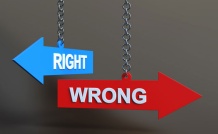Online Class: Telephone Skills and Quality Customer Service

no certificate
with CEU Certificate*
-
13Lessons
-
26Exams &
Assignments -
2,801Students
have taken this course -
12Hours
average time -
1.2CEUs
Course Description
Mastering the Art of Telephone Customer Service
In today's fast-paced digital era, customers are surrounded by a plethora of channels to reach out, shop, and seek services. From the ever-evolving world of e-commerce to traditional face-to-face interactions, the modern consumer is empowered with choices. Yet, amidst the cacophony of these multiple touchpoints, the telephone remains a timeless instrument of choice for customers seeking clarity, resolutions, or simply to voice their concerns.
Why? The human voice, its nuances, and the immediate responsiveness it offers make telephonic interactions distinct and vital. However, the stakes are higher than ever. In a world where brand loyalty hinges on customer experience, delivering unparalleled telephone service isn't just recommended, it's imperative.
This course is meticulously designed to mold you into a telephone customer service maestro. Here, you will not only learn the fundamentals of telephone communication but also master the art of creating memorable customer experiences, even when faced with challenges.
Course Highlights:
-
Understanding Today's Landscape: Dive deep into the importance of telephone customer service in the contemporary world, amidst an array of digital communication avenues.
-
Voice, Your Greatest Asset: Cultivate a phone voice that is pleasant, clear, and inviting, setting the tone for a positive customer interaction.
-
First Impressions, Lasting Impact: Equip yourself with strategies to make the opening seconds of a call count, ensuring the customer feels acknowledged and valued.
... [Continuing through Lessons 4-13 with a detailed description]
Why Opt for This Course?:
Telephone customer service goes beyond scripted dialogues. It's an orchestra of active listening, effective communication, emotional intelligence, and a genuine desire to assist. This course promises to instill in you all these skills and more. By its culmination, you will be adept at ensuring every customer hangs up with their issues resolved, questions answered, and spirits uplifted.
Who Should Enroll?:
-
Customer Service Professionals: Elevate your telephone service skills, standing out in your professional journey.
-
Sales and Marketing Personnel: Learn the finesse of selling and promoting over the phone, striking a balance between persuasion and customer comfort.
-
Aspiring Customer Support Agents: Lay a strong foundation, embarking on a rewarding career in customer service.
-
Anyone Interested in Enhancing Communication Skills: Whether you’re a business owner, freelancer, or simply someone keen to improve, this course offers valuable insights.
In Conclusion:
"Mastering the Art of Telephone Customer Service" isn't just a course; it's a transformative journey. It challenges you to rise above the ordinary, ensuring every phone interaction is a testament to your company's commitment to excellence. Embrace the course, and empower yourself to be the reassuring voice at the other end of the line, fostering lasting customer relationships. Enroll today and redefine telephone customer service excellence!
Course Motivation
The world of commerce has evolved rapidly in the last several decades, offering individuals a wide range of options for satisfying their need for products and services. However, these increased options have not only made it easier to look for and find what they want but raised their expectations. People have developed shorter attention spans and a greater sense of urgency in response to our newer, faster lifestyles. They are, essentially, used to instant gratification and quick fixes. How can you meet their needs while providing honest, accurate service when you are on the other end of a telephone line?
-
Respect means acknowledging the importance of every phone call. Always address your client in a respectful manner; don't interrupt them, argue with them or belittle their concerns.
-
Professionalism is evident in everything from your tone of voice to your ability to help them. A true professional never makes excuses or gets upset with the client. Defensiveness or aggression has no place in a professional conversation. Instead, convey an appropriate demeanor that shows you are ready and willing to help them, even if that means giving them to another person or offering to research their problem and call them back when you have an answer.
-
Efficiency is the understanding that every call should be short and to the point, but never abrupt. You do not want to rush a customer off the line, but customers do not want to feel like you are wasting their time, either.
Here are the most common reasons people call a customer service representative:
-
They prefer talking to a real person rather than using the Internet, whether because they are not comfortable with computer technology or they do not want to put their information on the Web.
-
They have run into a problem with the Internet and need assistance.
-
They want to place a rush order or ask a question about a product or service and cannot find the information elsewhere.
-
They have a complaint and want a quick resolution.
There are more than a few limitations to communicating by telephone, despite many people's preference for voice communication. Some people prefer calling instead of using the Internet or mail because they like the immediacy and the opportunity to interact directly, but this doesn't overcome some basic telephone shortcomings:
-
People expect quick results when they call, even if you do not have all of the information needed at your fingertips. You may have to return their call, which can lead to frustration.
-
Phone calls prevent customers from reading facial and other non-verbal cues. You may be surprised to know that over 50 percent of the impact in a typical face-to-face conversation is based on non-verbal cues, such as the eyes, frowns, smiles, hand gestures, and body position.
-
Telephone reception can distort the sound and inflection of your voice, which the person on the other end of the line may misinterpret.
-
Multitasking, such as carrying on the conversation and using your computer, can cause you to sound abrupt or preoccupied.
-
You do not automatically know whether the other person is calling from home, work, or car. Misunderstanding where the caller is and how many distractions exist at his or her end may contribute to your suggesting impractical solutions or inadvertently offending the customer.
-
The person who calls you may not be prepared with what is needed. If customers contact you for information about an order but do not have the account number handy, they may become flustered or frustrated.
Certain problems arise more than others during customer service calls, which typify why so many people hate the thought of calling a customer service center. The most common problem is being put on hold. Nothing is more frustrating than calling a company because you need assistance or want to place an order, only to be placed on hold indefinitely. It gives customers the impression their call is not important (recorded messages saying, "Your call is important to us," not withstanding) and wastes their time.
Another customer service area with the potential to create problems is forwarding. Customers are thrilled when you can help them without the need to forward their call to another person. Many people fear being forwarded because they get the impression they are being handed off to be "gotten rid of," so how you explain forwarding can make all the difference in the world to a customer.
With so much potential for problems, is it possible to provide outstanding customer service over the phone? Yes! If you learn the proper techniques of telephone etiquette and service, you can not only satisfy clients but demonstrate that your company is going above and beyond to ensure they are happy, improving your professional reputation and ensuring repeat customers.
- Completely Online
- Self-Paced
- Printable Lessons
- Full HD Video

- 6 Months to Complete
- 24/7 Availability
- Start Anytime
- PC & Mac Compatible
- Android & iOS Friendly
- Accredited CEUs

Course Lessons
Lesson 1: The Challenge of Telephone Customer Service in Today's World
 Lesson 1 Video
Lesson 1 Video Lesson discussions: Bad Habits; Reasons for Taking this Course
Lesson discussions: Bad Habits; Reasons for Taking this Course Complete Assignment: An Introduction
Complete Assignment: An Introduction Complete: Lesson 1 Assignment
Complete: Lesson 1 Assignment Assessment: Quiz for Lesson 1 : The Challenge of Telephone Customer Service in Today’s World
Assessment: Quiz for Lesson 1 : The Challenge of Telephone Customer Service in Today’s World
Lesson 2: Cultivating an Excellent Phone Voice
 Lesson 2 Video
Lesson 2 Video Complete: Lesson 2 Assignment
Complete: Lesson 2 Assignment Assessment: Quiz for Lesson 2 : Cultivating an Excellent Phone Voice
Assessment: Quiz for Lesson 2 : Cultivating an Excellent Phone Voice
Lesson 3: First Impressions Count
 Lesson 3 Video
Lesson 3 Video Complete: Lesson 3 Assignment
Complete: Lesson 3 Assignment Assessment: Quiz for Lesson 3 : First Impressions Count
Assessment: Quiz for Lesson 3 : First Impressions Count
Lesson 4: Learning How to Listen
 Lesson 4 Video
Lesson 4 Video Complete: Lesson 4 Assignment
Complete: Lesson 4 Assignment Assessment: Quiz for Lesson 4 : Learning How to Listen
Assessment: Quiz for Lesson 4 : Learning How to Listen
Lesson 5: Keeping the Conversation Going
 Lesson 5 Video
Lesson 5 Video Complete: Lesson 5 Assignment
Complete: Lesson 5 Assignment Assessment: Quiz for Lesson 5 : Keeping the Conversation Going
Assessment: Quiz for Lesson 5 : Keeping the Conversation Going
Lesson 6: Conference Calls and International Calling Etiquette
 Lesson 6 Video
Lesson 6 Video Complete: Lesson 6 Assignment
Complete: Lesson 6 Assignment Assessment: Quiz for Lesson 6 : Conference Calls and International Calling Etiquette
Assessment: Quiz for Lesson 6 : Conference Calls and International Calling Etiquette
Lesson 7: Call Transfers and Holds
 Lesson 7 Video
Lesson 7 Video Complete: Lesson 7 Assignment
Complete: Lesson 7 Assignment Assessment: Quiz for Lesson 7 : Call Transfers and Holds
Assessment: Quiz for Lesson 7 : Call Transfers and Holds
Lesson 8: Using Voice Mail and Taking Messages
 Lesson 8 Video
Lesson 8 Video Lesson discussions: Voicemail Pandemonium
Lesson discussions: Voicemail Pandemonium Complete: Lesson 8 Assignment
Complete: Lesson 8 Assignment Assessment: Quiz for Lesson 8 : Using Voicemail and Taking Messages
Assessment: Quiz for Lesson 8 : Using Voicemail and Taking Messages
Lesson 9: Screening Calls
 Lesson 9 Video
Lesson 9 Video Assessment: Quiz for Lesson 9 : Screening Calls
Assessment: Quiz for Lesson 9 : Screening Calls
Lesson 10: Selling on the Telephone
 Lesson 10 Video
Lesson 10 Video Complete: Lesson 10 Assignment
Complete: Lesson 10 Assignment Assessment: Quiz for Lesson 10 : Selling on the Telephone
Assessment: Quiz for Lesson 10 : Selling on the Telephone
Lesson 11: Soothing Irate Customers
 Lesson 11 Video
Lesson 11 Video Assessment: Quiz for Lesson 11 : Soothing Irate Customers
Assessment: Quiz for Lesson 11 : Soothing Irate Customers
Lesson 12: When You Have to Say, "No"
 Lesson 12 Video
Lesson 12 Video Lesson discussions: Telemarketer Feeding Frenzy
Lesson discussions: Telemarketer Feeding Frenzy Complete: Lesson 12 Assignment
Complete: Lesson 12 Assignment Assessment: Quiz for Lesson 12 : When You Have to Say “No”
Assessment: Quiz for Lesson 12 : When You Have to Say “No”
Lesson 13: Some Final Thoughts on Telephone Etiquette for Quality Customer Service
 Lesson 13 Video
Lesson 13 Video Lesson discussions: What is your opinion of this course?; Program Evaluation Follow-up Survey (End of Course); Course Comments
Lesson discussions: What is your opinion of this course?; Program Evaluation Follow-up Survey (End of Course); Course Comments Complete: Lesson 13 Assignment
Complete: Lesson 13 Assignment Assessment: Quiz for Lesson 13 : Some Final Thoughts on Telephone Etiquette for Quality Customer Service
Assessment: Quiz for Lesson 13 : Some Final Thoughts on Telephone Etiquette for Quality Customer Service Assessment: The Final Exam
Assessment: The Final Exam
Learning Outcomes
- Describe the challenges of telephone customer service in today's world.
- Cultivate an excellent phone voice.
- Demonstrate first impressions.
- Describe methods for better listening.
- Describe ways to keep the conversation going.
- Describe conference calls and international calling etiquette.
- Describe etiquette for call transfers and holds.
- Describe best practices for using voicemail and taking messages.
- Summarize when to screen calls.
- Summarize best methods for selling on the telephone.
- Describe methods for soothing irate customers.
- Recognize when you have to say "no".
- Demonstrate mastery of lesson content at levels of 70% or higher.
Additional Course Information

- Document Your Lifelong Learning Achievements
- Earn an Official Certificate Documenting Course Hours and CEUs
- Verify Your Certificate with a Unique Serial Number Online
- View and Share Your Certificate Online or Download/Print as PDF
- Display Your Certificate on Your Resume and Promote Your Achievements Using Social Media

Choose Your Subscription Plan
No Certificate / No CEUs
This course only
| Includes certificate | X |
| Includes CEUs | X |
| Self-paced |

|
| Instructor support |

|
| Time to complete | 6 months |
| No. of courses | 1 course |
Certificate & CEUs
This course only
| Includes certificate |

|
| Includes CEUs |

|
| Self-paced |

|
| Instructor support |

|
| Time to complete | 6 months |
| No. of courses | 1 course |
Certificates & CEUs
Includes all 600+ courses
| Includes certificate |

|
| Includes CEUs |

|
| Self-paced |

|
| Instructor support |

|
| Time to complete | 12 Months |
| No. of courses | 600+ |
Certificates & CEUs
Includes all 600+ courses
| Includes certificate |

|
| Includes CEUs |

|
| Self-paced |

|
| Instructor support |

|
| Time to complete | 24 Months |
| No. of courses | 600+ |
Student Testimonials
- "This course is very helpful to advance customer service skills. There are many techniques that you can use for some difficult situations with clients. The phone etiquette is one of my favorite. The course helps you on how to stay professional when dealing with customers." -- Rubelyn L.
- "The course was very easy to learn. I did not have a hard time understanding the concepts and skills needed to provide quality customer service that were taught in this course. The same is to be said for the quizzes and assignments. They were helpful in order to test what was taught as I progressed through the course. Overall, I am satisfied with taking this course and would definitely recommend it." -- Hina S.
- "I found this course very helpful. I have learned a lot and will apply it to my job and always stive to provide the best customer phone service I can provide. I would recommend this class to anyone whether they have customer phone experience or not, but I would highly recommend to anyone just starting out in the workforce. Especially if they will be dealing the majority of the time with customers over the phone." -- Billy B.
- "This course was very informative and greatly helped more in my job than I actually realized. When transferring a customer and following the step by step guidelines really made the transaction easier. I had an irate customer and remembering my lessons I was able to help them more without my anxiety going into over drive. I definitely say 10 out of 10 reviews for this class." -- Mallory E.
- "This class was very informative for handling calls professionally and giving correct responses. This course really show you how to communicate effectively as well as efficiently." -- Lani R.
- "Hello, I want to thank you for taking the time and efforts in grading my assignments. You have been a great instructor. I have been doing customer service for a while. I have learned a lot in taking this course." -- Renee B.
- "The instructor was very prompt in delivering the results and provided corrections to questions that were not correct." -- Patricia L.
- "Thank you for all the information that has been provided. I plan on using everything I learned!" -- Trish P.
- "This is my first time doing classes on line, and the Instructor was the best." -- Dorothy S.
- "It was a helpful course." -- Leah L.
Related Courses
-
 29 hours
2.9 CEUs
Human Resources Productivity Course Bundle
+ More Info
29 hours
2.9 CEUs
Human Resources Productivity Course Bundle
+ More Info
-
 87 hours
8.7 CEUs
Writing Help Course Bundle
+ More Info
87 hours
8.7 CEUs
Writing Help Course Bundle
+ More Info
-
 6 hours
0.6 CEUs
Delegation Skills
+ More Info
6 hours
0.6 CEUs
Delegation Skills
+ More Info
-
 5 hours
0.5 CEUs
Operations Management 101
+ More Info
5 hours
0.5 CEUs
Operations Management 101
+ More Info
-
 6 hours
0.6 CEUs
Goal Setting for Business
+ More Info
6 hours
0.6 CEUs
Goal Setting for Business
+ More Info
-
 4 hours
0.4 CEUs
Resolving Workplace Conflict
+ More Info
4 hours
0.4 CEUs
Resolving Workplace Conflict
+ More Info
-
 9 hours
0.9 CEUs
Introduction to Six Sigma
+ More Info
9 hours
0.9 CEUs
Introduction to Six Sigma
+ More Info
-
 7 hours
0.7 CEUs
Interpersonal Communication
+ More Info
7 hours
0.7 CEUs
Interpersonal Communication
+ More Info
-
 5 hours
0.5 CEUs
Communicating with Diplomacy and Tact
+ More Info
5 hours
0.5 CEUs
Communicating with Diplomacy and Tact
+ More Info
-
 5 hours
0.5 CEUs
Diversity Training 101
+ More Info
5 hours
0.5 CEUs
Diversity Training 101
+ More Info
-
 13 hours
1.3 CEUs
Image Consultant
+ More Info
13 hours
1.3 CEUs
Image Consultant
+ More Info
-
 7 hours
0.7 CEUs
Lean Management
+ More Info
7 hours
0.7 CEUs
Lean Management
+ More Info
-
 6 hours
0.6 CEUs
Business Branding 101
+ More Info
6 hours
0.6 CEUs
Business Branding 101
+ More Info
-
 7 hours
0.7 CEUs
Preventing Workplace Harassment
+ More Info
7 hours
0.7 CEUs
Preventing Workplace Harassment
+ More Info
-
 6 hours
0.6 CEUs
Call Center Management
+ More Info
6 hours
0.6 CEUs
Call Center Management
+ More Info
-
 5 hours
0.5 CEUs
Running Effective Meetings
+ More Info
5 hours
0.5 CEUs
Running Effective Meetings
+ More Info
-
 9 hours
0.9 CEUs
Customer Relationship Management
+ More Info
9 hours
0.9 CEUs
Customer Relationship Management
+ More Info
-
 5 hours
0.5 CEUs
Developing Great Social Skills
+ More Info
5 hours
0.5 CEUs
Developing Great Social Skills
+ More Info
-
 6 hours
0.6 CEUs
Gender Sensitivity Training
+ More Info
6 hours
0.6 CEUs
Gender Sensitivity Training
+ More Info
-
 7 hours
0.7 CEUs
Cross-Cultural Communication
+ More Info
7 hours
0.7 CEUs
Cross-Cultural Communication
+ More Info
-
 7 hours
0.7 CEUs
Respectful International Workplace
+ More Info
7 hours
0.7 CEUs
Respectful International Workplace
+ More Info
-
 6 hours
0.6 CEUs
Generational Diversity in the Workplace
+ More Info
6 hours
0.6 CEUs
Generational Diversity in the Workplace
+ More Info
-
 5 hours
0.5 CEUs
Personal Communication Skills Level 1
+ More Info
5 hours
0.5 CEUs
Personal Communication Skills Level 1
+ More Info
-
 8 hours
0.8 CEUs
Community Development 101
+ More Info
8 hours
0.8 CEUs
Community Development 101
+ More Info
-
 7 hours
0.7 CEUs
Management Consultant 101
+ More Info
7 hours
0.7 CEUs
Management Consultant 101
+ More Info
-
 14 hours
1.4 CEUs
Journalism 101
+ More Info
14 hours
1.4 CEUs
Journalism 101
+ More Info
-
 7 hours
0.7 CEUs
Leadership Skills for Managers
+ More Info
7 hours
0.7 CEUs
Leadership Skills for Managers
+ More Info
-
 6 hours
0.6 CEUs
Management Essentials
+ More Info
6 hours
0.6 CEUs
Management Essentials
+ More Info
-
 5 hours
0.5 CEUs
The Art of Setting Goals
+ More Info
5 hours
0.5 CEUs
The Art of Setting Goals
+ More Info
-
 7 hours
0.7 CEUs
Introduction to Ethics
+ More Info
7 hours
0.7 CEUs
Introduction to Ethics
+ More Info
-
 10 hours
1.0 CEUs
Mastering Sales Skills 101
+ More Info
10 hours
1.0 CEUs
Mastering Sales Skills 101
+ More Info
-
 6 hours
0.6 CEUs
Workplace Violence: A Guide to Responding and Preventing
+ More Info
6 hours
0.6 CEUs
Workplace Violence: A Guide to Responding and Preventing
+ More Info
-
 9 hours
0.9 CEUs
Marketing 101
+ More Info
9 hours
0.9 CEUs
Marketing 101
+ More Info
-
 4 hours
0.4 CEUs
Slack
+ More Info
4 hours
0.4 CEUs
Slack
+ More Info
-
 7 hours
0.7 CEUs
Creating an Effective Sales Team
+ More Info
7 hours
0.7 CEUs
Creating an Effective Sales Team
+ More Info
-
 6 hours
0.6 CEUs
How to Run an Effective Help Desk
+ More Info
6 hours
0.6 CEUs
How to Run an Effective Help Desk
+ More Info
-
 6 hours
0.6 CEUs
Leadership and Supervision 101
+ More Info
6 hours
0.6 CEUs
Leadership and Supervision 101
+ More Info
-
 8 hours
0.8 CEUs
Motivational and Public Speaking 101
+ More Info
8 hours
0.8 CEUs
Motivational and Public Speaking 101
+ More Info









